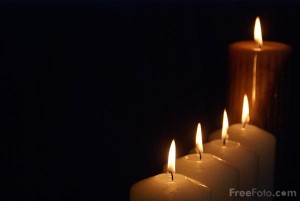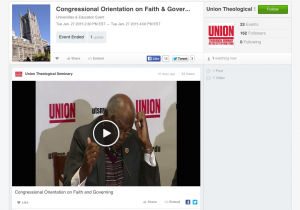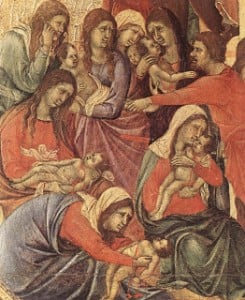 As elections wrap up and Advent begins, I cannot help but to think of the ostensible paradox that the two seasons represent. It is an overlap of one season defined by divisive, partisan spectacle—all inclusive of attack ads, pontification and sentimentality—with a season of waiting, humility, reflection and for many people, togetherness.
As elections wrap up and Advent begins, I cannot help but to think of the ostensible paradox that the two seasons represent. It is an overlap of one season defined by divisive, partisan spectacle—all inclusive of attack ads, pontification and sentimentality—with a season of waiting, humility, reflection and for many people, togetherness.
Amidst a harsh political culture, oddly enough, the season of Advent tends to bring people together. Families, friends and colleagues who cannot be in the same room during election season because of political differences, fluidly move into exchanging gifts, communing over meals and lighting candles together at midnight church services.
This observation seems to set up a strict dichotomy. But In fact, it may be inaccurate to assume that the practices of each of these seasons exist in completely separate realms. Time has created confluence, but somehow the two seasons have been completely disassociated. Perhaps this is the case because election season fits into our everyday routines, while Advent is categorized as a sacred occasion, or a time held within our personal lives of faith.
Nevertheless, the hope embedded in the liturgical season of Advent has plenty staying power to permeate the other seasons of our lives. Richard Rohr, a Catholic theologian, recently wrote an article on this topic as part of his Daily Reflections for Advent.
Most of our everyday lives are spent meeting continual deadlines and expecting immediate returns. This is common to most everyone. It is a normative pattern for so many of us in our public and private lives. Rarely do we wait and anticipate in a space where our actions can do little to expedite the process. But this is essential in Advent. We wait for something that is not yet and briefly set aside our usual state of immediacy.
Advent is defined by this inability to quickly and radically change the current state of things. Approaching Advent requires humility—a trait that is nearly foreign to the political hubris which so many of us are encouraged to utilize in order to win, or to get ahead.
We practice winning at the expense of mindfulness. Sadly, the experience of democracy has been relegated to hastily rejecting people, groups and communities solely based on an individual factor or preference that is unlike our own. Advent creates the space to temporarily suspend this habitual mindlessness. We set our hearts and minds on a common hope, ultimately fulfilled in the celebration of Christmas.
These qualities of Advent are not confined to the four Sunday’s before Christmas. The hope of Advent invites us to balance the seasons of our lives that seemingly contrast. We fool ourselves, and ultimately sell ourselves and our neighbors short when we segment our lives so much so that depth of experience is alienated.
With this recognition, Christmas does not end Advent; rather, it awakens us to a more complete way of being in the world. Mindfulness of ourselves, our families, our neighbors and of the things we do not understand makes for a richer experience of togetherness—even during seasons that seem to represent contrary ideals. As Advent rituals draw us together physically, they open us to broader dimensions of the human experience.
Zoey Kernodle works in development and constituent relations at Duke University, and serves as a remote fellow for Eleison. She earned a Master of Theological Studies from Emory University where she concentrated her work on the intersection of religion and public life. She currently resides in Chapel Hill, NC with her husband and little dog, Mozart.











